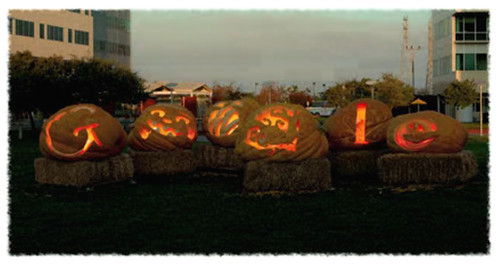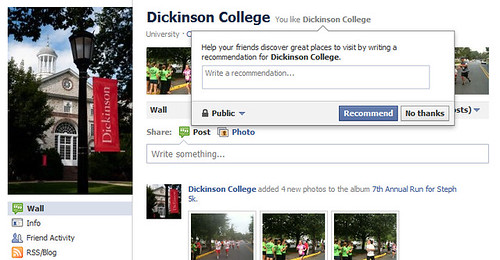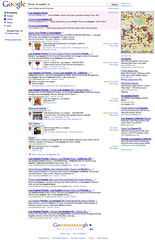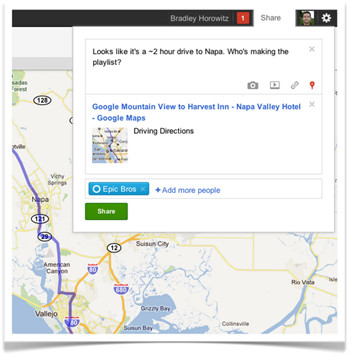The Atlantic Wire reported that Occupy Oakland protesters managed to get the name of Frank H. Ogawa Plaza to be changed in Google Maps to “Oscar Grant Plaza” — the name they dubbed it in remembrance of a man killed by BART police on New Years in 2009.
After media began noticing the unofficial name appearing in Google Maps, Google apparently corrected the error. I just did the search, and the plaza is showing the official name within the map, although you can see from the tooltip that some user had been encouraging people to post ratings under the protesters’ nickname for the place:

A Google spokesperson admitted that the name came from user-submitted edits, and that it shouldn’t have been approved, but should have been allowed as a “search reference”. I’ll translate: Google should not have pasted the name on the map as an official place-name, but should have allowed it to be added to their synonym database so that people searching on the name could easily find the location it refers to. As you can see from my screen-grab, it is now functioning as a search reference.
Concerningly, this incident supports what I have been saying, along with others, that Google Maps is particularly prone to Google-bombing from user-submitted content (“UGC”) edits. As I illustrated recently from Mike Blumenthal’s experiment to flag Google HQ as closed, some types of edits can result in businesses getting their listings defaced with false claims that they’re no longer open, and in even worse cases business Place Pages could get forced to rank for obnoxious terms, and labeled with descriptive terms that sabotage business referrals.
I could argue that it’s actually improper for the plaza to be made to rank for the unofficial name in this place, under the condition of a purposeful Google-bombing exploit. I can also argue that it’s useful and helpful for users to be able to search for places under their common nicknames and alternative spellings. But, I bend more towards this being an inappropriate association in this case. The edits were a type of vandalism intended to hijack place-names in maps in order to convey a political message represented by what was probably a relative minority (assuming the Occupy Oakland protest was a part of the nationwide protest movements sparked by Occupy Wall Street, it’s hard to fathom what a police killing in 2009 has to do with the outrage against corporate corruption and economic problems, other than perhaps some desire to kick up the drama a notch or to appeal to a subset of protesters who desire to associate themselves with a sort of iconic martyrdom).
Considering how there are relatively few checks and balances in place, it’s really not surprising that a mob of people can hijack a place name in Google Maps and change it to communicate their political message. This sort of thing is happening on a much smaller scale to hundreds and thousands of businesses which are unfairly harmed by similarly applied user edits.
While it’s great that consumers have a greater voice in this Business 2.0 age, I think some more balance needs to be brought back to “The Force” by way of limiting the easy manipulation of Google Places and it’s vulnerability to such exploits.
 Infogroup‘s Monday announcement of enhancements for their Express Update service mainly focused upon how they could help businesses claim their listings, optimize through an expanded set of data points, and submit their information to the Infogroup database. But, the press release also contained an unhappy surprise for Internet Yellow Pages companies: declaration that Infogroup is also launching an online directory in tandem with the improved Express Update service.
Infogroup‘s Monday announcement of enhancements for their Express Update service mainly focused upon how they could help businesses claim their listings, optimize through an expanded set of data points, and submit their information to the Infogroup database. But, the press release also contained an unhappy surprise for Internet Yellow Pages companies: declaration that Infogroup is also launching an online directory in tandem with the improved Express Update service.







The Occupy Protesters Google-Bombed Maps
November 9th, 2011 by Chris Silver SmithThe Atlantic Wire reported that Occupy Oakland protesters managed to get the name of Frank H. Ogawa Plaza to be changed in Google Maps to “Oscar Grant Plaza” — the name they dubbed it in remembrance of a man killed by BART police on New Years in 2009.
After media began noticing the unofficial name appearing in Google Maps, Google apparently corrected the error. I just did the search, and the plaza is showing the official name within the map, although you can see from the tooltip that some user had been encouraging people to post ratings under the protesters’ nickname for the place:
A Google spokesperson admitted that the name came from user-submitted edits, and that it shouldn’t have been approved, but should have been allowed as a “search reference”. I’ll translate: Google should not have pasted the name on the map as an official place-name, but should have allowed it to be added to their synonym database so that people searching on the name could easily find the location it refers to. As you can see from my screen-grab, it is now functioning as a search reference.
Concerningly, this incident supports what I have been saying, along with others, that Google Maps is particularly prone to Google-bombing from user-submitted content (“UGC”) edits. As I illustrated recently from Mike Blumenthal’s experiment to flag Google HQ as closed, some types of edits can result in businesses getting their listings defaced with false claims that they’re no longer open, and in even worse cases business Place Pages could get forced to rank for obnoxious terms, and labeled with descriptive terms that sabotage business referrals.
I could argue that it’s actually improper for the plaza to be made to rank for the unofficial name in this place, under the condition of a purposeful Google-bombing exploit. I can also argue that it’s useful and helpful for users to be able to search for places under their common nicknames and alternative spellings. But, I bend more towards this being an inappropriate association in this case. The edits were a type of vandalism intended to hijack place-names in maps in order to convey a political message represented by what was probably a relative minority (assuming the Occupy Oakland protest was a part of the nationwide protest movements sparked by Occupy Wall Street, it’s hard to fathom what a police killing in 2009 has to do with the outrage against corporate corruption and economic problems, other than perhaps some desire to kick up the drama a notch or to appeal to a subset of protesters who desire to associate themselves with a sort of iconic martyrdom).
Considering how there are relatively few checks and balances in place, it’s really not surprising that a mob of people can hijack a place name in Google Maps and change it to communicate their political message. This sort of thing is happening on a much smaller scale to hundreds and thousands of businesses which are unfairly harmed by similarly applied user edits.
While it’s great that consumers have a greater voice in this Business 2.0 age, I think some more balance needs to be brought back to “The Force” by way of limiting the easy manipulation of Google Places and it’s vulnerability to such exploits.
Tags: business listing hijacking, false information in Google Maps, Google Bombing, Google Maps exploits, hostile user edits, Occupy Oakland, Occupy protests
Posted in General Commentary, Google Maps, Maps & Mapping | 2 Comments »